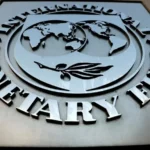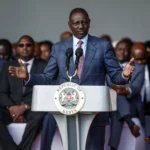Ghana is set to establish the Ghana Gold Board (GoldBod) by March 8, 2025, to regulate gold purchases from small-scale miners, boost foreign exchange earnings, and combat gold smuggling.
The initiative is led by Finance Minister Dr. Cassiel Ato Forson, who is expected to streamline the country’s gold sector, ensuring that Ghana maximizes the economic benefits of its gold resources.
The formation of the Gold Board is part of the government’s broader strategy to strengthen the cedi by formalizing and centralizing gold trade.
The board will act as the sole buyer of gold from legal small-scale miners, addressing the existing fragmented system that has fueled smuggling and reduced Ghana’s foreign exchange inflows. In 2024 alone, it was reported that nearly $5 billion worth of gold was exported from legal small-scale miners, while unofficial estimates suggest that smuggled gold values were almost double the official figures.
- Advertisement -
Dr. Forson emphasized that the board would oversee the entire gold value chain—from extraction to refining and marketing—both locally and internationally. This shift from relying solely on royalties and taxes will help Ghana unlock the full economic potential of its gold industry.
The Gold Board will also ensure compliance with international standards, particularly the London Bullion Market Association (LBMA) certification, which mandates that gold exports must not be linked to human rights violations, crime, or environmental destruction.
To establish a strong legal and operational framework for the Gold Board, a 19-member technical committee has been inaugurated. The committee includes experts from various sectors, including finance, mining, and legal affairs. Their task is to draft the legal framework by February 4, 2025, paving the way for the board’s official launch in March.
Beyond regulation, the board will also implement policies to improve traceability in gold trading, making Ghana’s gold more attractive in international markets.
With these measures, the Ghana Gold Board is expected to enhance economic stability, attract investment, and secure Ghana’s position as Africa’s leading gold producer.










